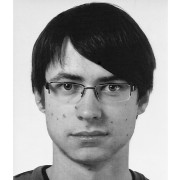Title: Detecting defects in conductive material using Lorentz force eddy current testing: Theory and Simulation
Speaker: Konstantin Weise, Research Fellow, Ilmenau University of Technology
Abstract: The presentation provides an overview about recent research activities in the field of the novel non-destructive testing method Lorentz Force Eddy Current Testing (LET) which was developed at the Technische Universitaet Ilmenau in Ilmenau, Germany. The method is based on the induction of eddy currents due to relative motion between a permanent magnet system and the object under test. Defects inside the specimen are identified by evaluating the forces acting on the permanent magnet. In this sense, LET is a contactless method to test electrical conductive materials, with the potential to detect deep lying defects. Compared to the traditional Eddy Current Testing Method (ECT), the penetration depth in case of motion induced eddy currents is still moderate for aluminium at velocities up to ~10 m/s. The presentation starts over with an introduction to LET. The physical principle is illustrated by explaining some analytical modelling techniques which are needed to determine the induced eddy current profiles and forces in case of relative motion.
Moreover, an optimization strategy is presented to determine a magnet-design which obeys inherently improved characteristics in terms of the defect response signal. The proposed magnet is a cylindrical Halbach-magnet system made of permanent magnet material (NdFeB) and a highly saturating Iron-Cobalt alloy which is used as a magnetic lens to further focus and increase the flux density inside the object under test.
Finally, the presentation provides an overview to uncertainty quantification in the framework of LET. Four of the most influencing input variables such as the electrical conductivity, the velocity, the magnetic remanence and the lift-off distance of the magnet are modelled as stochastic quantities whose properties were determined experimentally beforehand. The propagation of uncertainties on the resulting force is determined by means of the generalized Polynomial Chaos method. The results are compared to traditional Monte Carlo simulations and experiments. The analysis provides information about the sensitivity of the system under investigation by means of the Sobol decomposition of the total variance. In this way, it is possible to determine the most influencing parameters and to improve the experimental setup specifically.
Speaker Bio: Konstantin Weise received the B.Eng. degree from the University of Applied Science Leipzig, Leipzig, Germany, in 2009, and the M.Sc. degree in electrical engineering from the Technische Universitaet Ilmenau, Ilmenau, Germany, both with great honour, in 2012, where he is currently pursuing the Dr.-Ing. degree (equivalent to Ph.D.). He achieved an award from the German Physical Society (DPG) for excellent records in Physics at the high-school diploma and a distinction for his Bachelor thesis from the Society of German Engineers (VDI) in 2009. He received the Rita Trowbridge award from the International Compumag Society in 2015. His current research interests include biomedical engineering problems and non-destructive testing applications.
